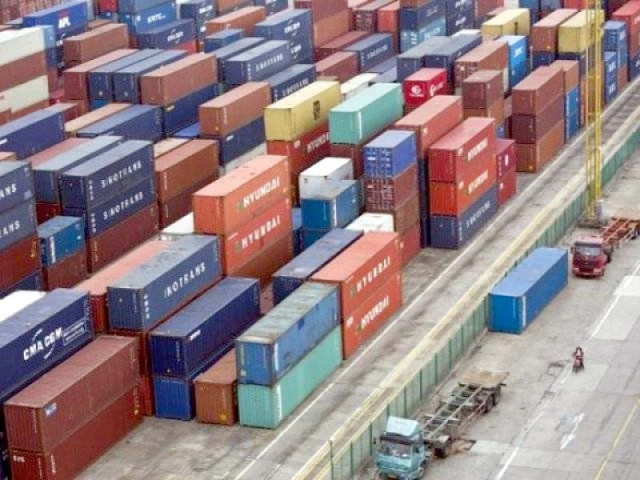Pakistan asked to boost ties with ME
Country needs to enhance exports, attract FDI to reduce trade deficit

Pakistan in its quest to reduce trade deficit should enhance business ties with Muslim economies, especially with the Middle Eastern countries, in line with the precedent set by the European and other regions. The 57-country alliance of Islamic Chamber of Commerce, Industry and Agriculture (ICCIA) represents an enormous collective gross domestic product (GDP) of $7 trillion that makes it the most significant alliance for Pakistan to enhance its exports, attract foreign direct investment (FDI) and remittances, said Federation of Pakistan Chambers of Commerce and Industry (FPCCI) President Irfan Iqbal Sheikh.
He was representing Pakistan at the 38th General Assembly of the alliance to discuss trade, investment, economic and B2B relations, according to a statement. “The trade volume among OIC (Organisation of Islamic Cooperation) countries is only 17.5%, while European Union (EU) countries have 55% and North America Free Trade Agreement (Nafta) has 58%,” Sheikh cited, adding that all ICCIA countries should work towards enhancement of trade to capitalise on mutual strengths while attending the 33rd board of directors meeting of ICCIA. “Trade with Islamic countries can be enhanced by identifying export opportunities and developing bilateral trade agreements,” AHL Head of Research Tahir Abbas told The Express Tribune.
“There are lots of export opportunities in Muslim countries, which Pakistan can explore. These sectors include services and IT exports, meat, agriculture, medical and surgical equipment and sports goods, he mentioned. The FPCCI chief pointed out that Pakistan should focus on enhancing its exports to OIC countries, particularly value-added textiles, leather products, footwear, handicrafts, sports goods, pharmaceuticals, gems and jewellery, rice, fruits and vegetables and construction material. “Pakistan should capitalise on people-to-people, business-to-business and chamber-to-chamber contacts, and translate them into government-to-government contacts aimed at increasing trade, investment and economic cooperation tangibly,” he said.
“We can certainly improve trade with OIC countries, in fact, some of them are major trading partners also. Albeit we largely import oil from them,” Taurus Securities Head of Research Mustafa Mustansir said. “Gulf Cooperation Council (GCC) countries are also one of the major nations from where we get our remittances.” One of the biggest challenges in exporting to these countries is regulation, while another is competition. Signing FTAs could be a step the government can take to grow trade with these countries, he said.
Trade shows and exhibitions would also help, he suggested. Alternatively, Pakistan’s government can also lobby for a favourable tariff structure like GSP Plus. Furthermore, Sheikh pointed out that one of the most pivotal opportunities with ICCIA countries for Pakistan is to export skilled and semi-skilled human resources to these countries as there is a potential to export as many as one –two million additional HR to these countries. Sheikh also expressed his profound concerns over the increasing energy and power prices in Pakistan and its fast-increasing demand.
He sought assistance from the oil-rich and economically sound brotherly Islamic countries to step up and help Pakistan in this hour of need as they have done on many critical occasions in the past. “ICCIA is a best platform to capitalise on trade and economic cooperation with Islamic countries,” said Arif Habib Commodities CEO Ahsan Mehanti. Pakistan is facing energy crises and power prices are surging owing to mismanagement and geo-political uncertainty. Trade agreements and preferential human resource exports can help arrest economic downfall, he stressed.
Pakistan is directly affected by many social or economic issues faced by Afghanistan and Muslim world should collectively help Afghanistan to tackle crises like food shortage, healthcare, unemployment, infrastructure and create enabling environment for economic growth, Sheikh stated. At the end, he proposed that OIC should organise trade fairs and exhibitions at various levels, across ICCIA, single-country exhibitions and sectorial fairs as well. He also hoped that this is possible now as most of the Covid-related restrictions have been lifted by the countries.


















COMMENTS
Comments are moderated and generally will be posted if they are on-topic and not abusive.
For more information, please see our Comments FAQ